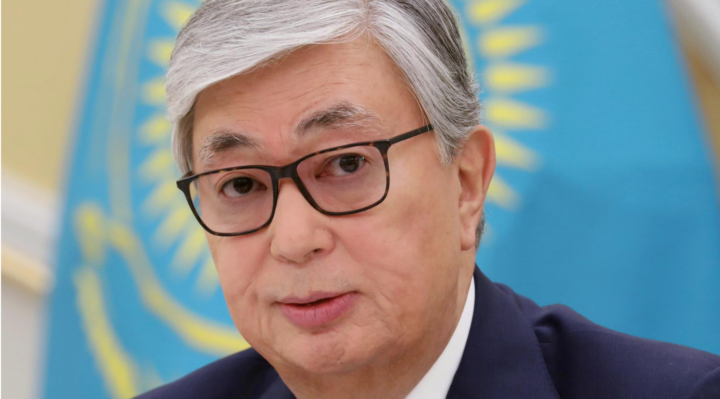Kazakhstan is embarking on new reforms of the government and the economy to overcome the pandemic’s global crisis.”We will change the approaches to public administration, personnel policy, decision-making system, and responsibility for their implementation,” said President Kassym-Jomart Tokayev, speaking to the nation at the opening of the Parliament’s session.

“If we want to improve the lives of our citizens, then we should involve them in the reform process,” he said.
The President suggested introducing direct elections of local akims (rural mayors) and strengthening the financial capabilities of local self-government.
He also proposed to develop a single legitimate institution of online petitions to initiate reforms and proposals by citizens.By the end of 2021, Kazakhstan will reduce the state apparatus by 25% and improve corporate governance of state-owned companies. The law enforcement and judicial systems will be reformed as well.
“New measures to protect human rights are crucial. This issue is a priority for me,” the President said. He pointed out the tasks on the improvement of legislation to combat torture and trafficking in persons and protecting people from cyberbullying.
The Government will massively invest in the national health system. By 2023, doctors’ salaries will be twice the average wages in the economy, Tokayev pledged.
All essential medicines and medical devices will be manufactured in Kazakhstan. By the end of this year, 13 new infectious diseases hospitals will be built in the regions.
And by 2025, 20 new modern multifunctional healthcare facilities will be commissioned.The Government will annually send 500 Kazakh scholars for internships in leading scientific centers of the world and provide 1000 grants for young scientists.
Environment and biodiversity protection are becoming top priority for the Government.
Over the next five years, more than 2 billion trees will be planted in the forests and 15 million in towns and cities. The protection of national parks and other natural resources will be strengthened. “In the medium term, economic growth will become more and more ‘greener’.
Therefore, we must lay down the foundation for deep decarbonization,” the President said.The state intends to eliminate digital inequality and ensure maximum access to the Internet and high-quality communication. The system of digital document management and digital services will be improved.
“Working with data must attain a new level. Providing a unified database system, their further development is one of the main tasks of the Government,” the President said. Over the past year, more than 80 bn tenge (200 m euro) of investments were attracted to digital mining. Within five years, the country plans to bring the volume of investments in this industry to 500 bn tenge (1 bn euro).
New investment incentives
Diversification of industries and the attraction of new investments will be a vital priority in economic policy. The country will start developing new processing levels in ferrous and non-ferrous metallurgy, petrochemicals, automobile, mechanical engineering, building materials, food products, and other sectors.For strategic projects, the Government will provide a package of in-kind grants, concessional funding, and a partial guarantee of export support mechanisms.
Part of the capital investment will be reimbursed by offsetting against tax liabilities.
The President suggested to ensure guaranteed procurement from the state, quasi-state sectors, and subsoil users. A strategic investment agreement will be introduced.In agriculture, 7 large ecosystems will be formed to process meat, fruits, vegetables, sugar, grain, oilseeds, and dairy products.
The fishing industry will get new support. The Government will strengthen the agricultural science and modernize irrigation systems.
Kazakhstan will continue to develop its transport and logistics complex. “Kazakhstan’s competitiveness should grow due to breakthrough infrastructure projects, attracting new countries and companies, increasing the level of service and the speed of transit routes. The task is to reconstruct and provide road services for 24,000 km of roads by 2025, that is, all roads in the country,” Tokayev said.
The government will also adopt a new privatization plan. “The government should have only social facilities, as well as facilities that ensure the security and functioning of the state,” the President said.
